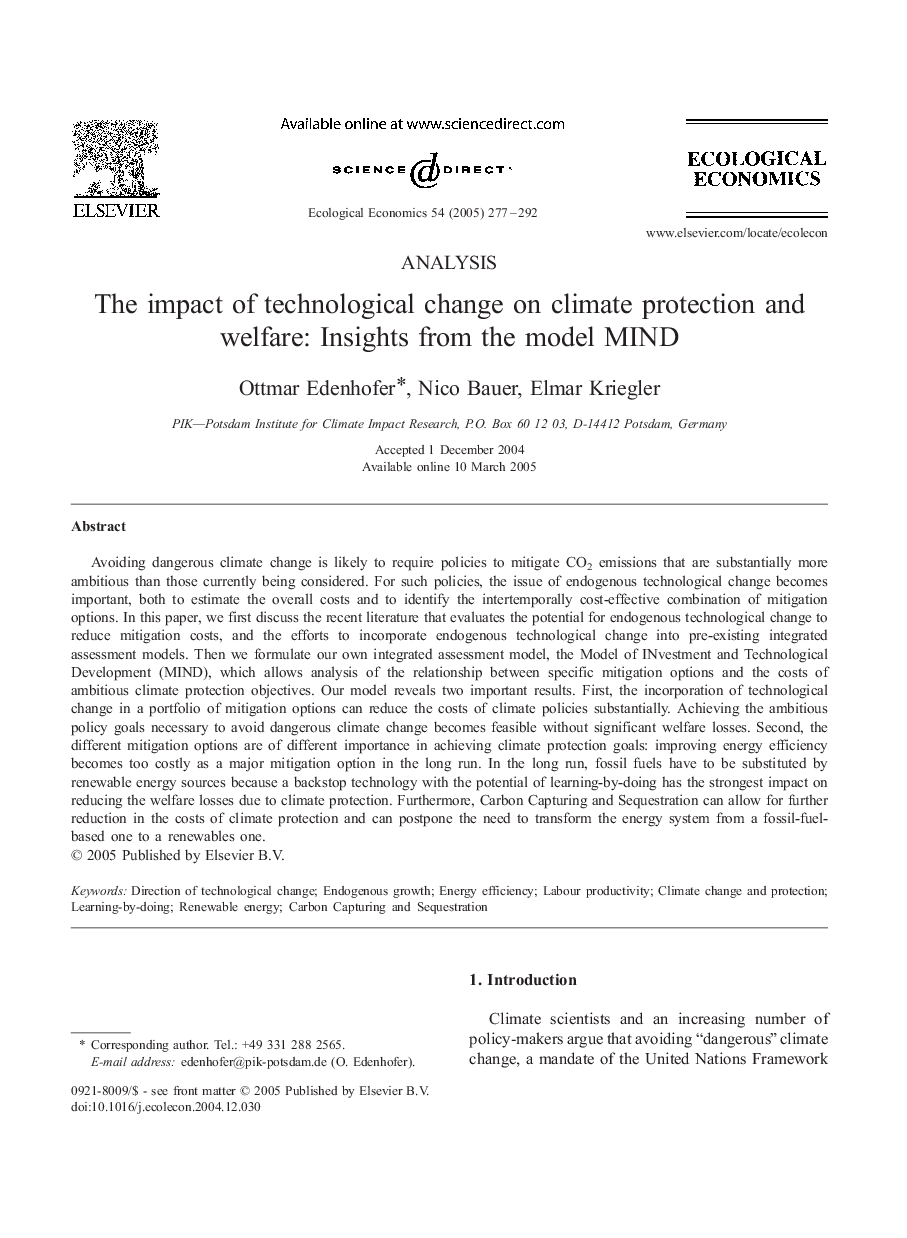| Article ID | Journal | Published Year | Pages | File Type |
|---|---|---|---|---|
| 9547789 | Ecological Economics | 2005 | 16 Pages |
Abstract
Avoiding dangerous climate change is likely to require policies to mitigate CO2 emissions that are substantially more ambitious than those currently being considered. For such policies, the issue of endogenous technological change becomes important, both to estimate the overall costs and to identify the intertemporally cost-effective combination of mitigation options. In this paper, we first discuss the recent literature that evaluates the potential for endogenous technological change to reduce mitigation costs, and the efforts to incorporate endogenous technological change into pre-existing integrated assessment models. Then we formulate our own integrated assessment model, the Model of INvestment and Technological Development (MIND), which allows analysis of the relationship between specific mitigation options and the costs of ambitious climate protection objectives. Our model reveals two important results. First, the incorporation of technological change in a portfolio of mitigation options can reduce the costs of climate policies substantially. Achieving the ambitious policy goals necessary to avoid dangerous climate change becomes feasible without significant welfare losses. Second, the different mitigation options are of different importance in achieving climate protection goals: improving energy efficiency becomes too costly as a major mitigation option in the long run. In the long run, fossil fuels have to be substituted by renewable energy sources because a backstop technology with the potential of learning-by-doing has the strongest impact on reducing the welfare losses due to climate protection. Furthermore, Carbon Capturing and Sequestration can allow for further reduction in the costs of climate protection and can postpone the need to transform the energy system from a fossil-fuel-based one to a renewables one.
Related Topics
Life Sciences
Agricultural and Biological Sciences
Ecology, Evolution, Behavior and Systematics
Authors
Ottmar Edenhofer, Nico Bauer, Elmar Kriegler,
